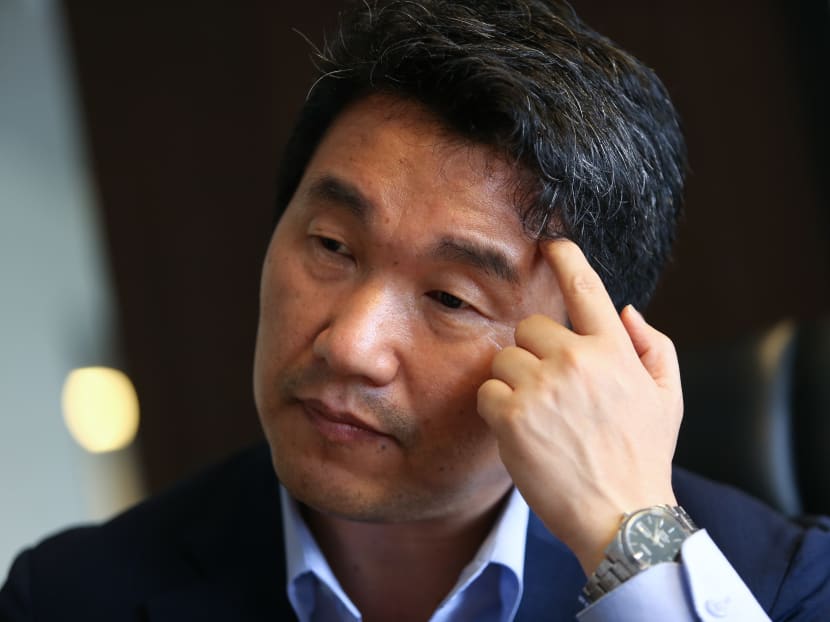Earlier introduction of vocational education 'could have prevented' S Korea's grad glut
SINGAPORE — On hindsight, South Korea could have averted the glut of graduates that has plagued its economy for years if it had introduced high-quality vocational education earlier, said the country’s former Minister of Education, Science and Technology Lee Ju-Ho.

Former Minister of Education, Science and Technology of Korea, Professor Lee Ju-ho. Photo: Don Wong/TODAY
SINGAPORE — On hindsight, South Korea could have averted the glut of graduates that has plagued its economy for years if it had introduced high-quality vocational education earlier, said the country’s former Minister of Education, Science and Technology Lee Ju-Ho.
Between 2010 and last year, its youth unemployment rate hovered around 8 to 9 per cent, above its overall unemployment rate of 3.9 per cent.
Professor Lee, who was in Singapore to speak about his country’s experience in education policies as part of a SkillsFuture lecture series, noted that in 2009, more than eight in 10 South Korean students went on to university.
Subsequent research found that the nation’s university graduates were earning about a quarter less than those who had graduated from high school.
High school in the country is attended by students between 16 and 18 years old before they enter university.
“Maybe we should (have implemented a) faster change in vocational and technical education earlier ... so people could have more options,” said Prof Lee, who helmed the Education, Science and Technology Ministry from August 2010 to March 2013.
Under his watch, South Korea revamped its vocational education high schools by introducing Meister (German for “master”) High Schools. These institutes partner businesses and recruit teachers or craftsmen who are familiar with vocational education.
Some schools are headed by former chief executives of companies such as Renault-Samsung Motors — a controversial move, Prof Lee said. “It is not usual and the teachers opposed ... Principal groups didn’t like the idea.”
There are currently 50 Meister High Schools, which receive twice the government funding given to normal high schools and have to ensure all their students find jobs upon graduation.
Admission is based not solely on academic grades, with applicants having to go through interviews.
For a tuition-crazed society, this helped relieve stress on parents and students, Prof Lee noted. “You have students with lower test scores but good character. They could be more welcomed by the industry,” he said.
Letting former CEOs head the schools made a difference to the admission process as they are keenly aware of the aptitude required of workers in the industry, he added.
“Because there is too much competition to enter a better university, you spend a lot on private tution. But if parents and students decide to go to a Meister high school, they don’t have to spend too much to raise test scores.”
The initiative even helped youth secure jobs at conglomerates including Samsung over their peers who graduated from elite universities, Prof Lee said.
As a result, the society’s perception of vocational education also shifted to a point where students among the top 20 per cent of each cohort clamour for places in Meister High Schools.
Despite the initiative’s success, the economics don at KDI School of Public Policy and Management acknowledged that people should be given the opportunity to fulfil their aspirations of attaining a degree.
The key is to ensure vocation schools are “not a dead end” and that their graduates have the chance to further their education via night classes or weekend courses and earn higher qualifications.
“What is a more serious issue is if you blindly advance to university (just to attain paper qualifications),” he said. A person who does that may find himself in danger of lower wages after he has secured a job, he noted.
The government has also widened university admission criteria to look beyond entrance test scores and promoted schemes for companies to reward employees based on their skills. Overall, the slew of measures resulted in the advancement rate to universities to drop to about 70 per cent today.
“Vocational education can provide alternative options for students who do not go to universities and have different talents,” said Prof Lee.
“If there is no well-developed vocational and technical education in the system, you will have only vertical differentiation ending up with first-tier, second-tier universities.”
Earlier this year, Singapore introduced the SkillsFuture movement to enable all Singaporeans to develop skills that are relevant to the future. Among the raft of measures include enhanced internships for tertiary students and on-the-job training for fresh polytechnic and ITE graduates through earn-and-learn programmes supported by the Government.






